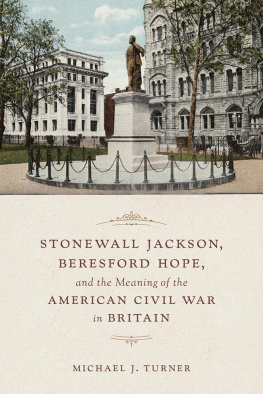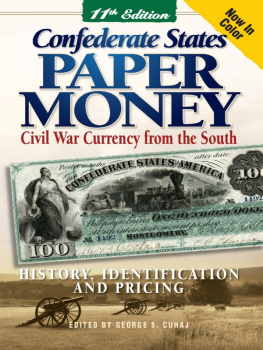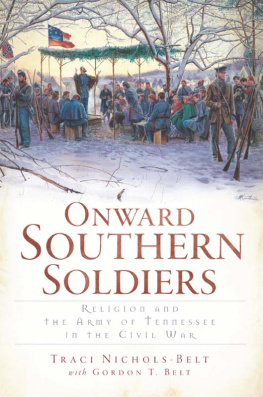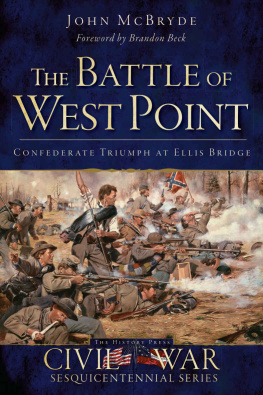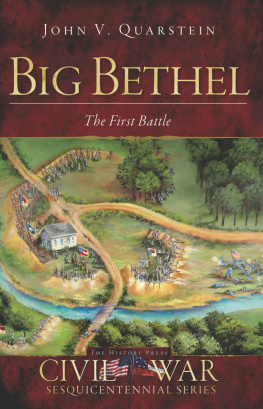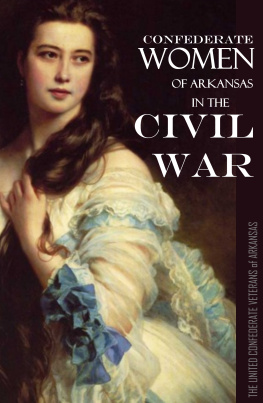None Shall
Look Back

Southern Classics Series
M. E. Bradford, Editor
Southern Classics Series
M. E. Bradford, Series Editor

Donald Davidson | The Tennessee, Volume I |
Donald Davidson | The Tennessee, Volume II |
Caroline Gordon | Green Centuries |
Caroline Gordon | None Shall Look Back |
Caroline Gordon | Penhally |
Augustus Baldwin Longstreet | Georgia Scenes |
Andrew Nelson Lytle | Bedford Forrest and His Critter Company |
Andrew Nelson Lytle | A Wake for the Living |
Thomas Nelson Page | In Ole Virginia |
William Pratt, Editor | The Fugitive Poets |
Elizabeth Madox Roberts | The Great Meadow |
Allen Tate | Stonewall Jackson |
Robert Penn Warren | Night Rider |
Owen Wister | Lady Baltimore |
Stark Young | So Red the Rose |
None Shall
Look Back

CAROLINE GORDON
with a preface by Eileen Gregory
Stand, stand, shall they cry; but none shall look back.
NAHUM, Chap. II, Verse 8.

Originally Published 1937
Copyright 1937 by Caroline Tate
Copyright renewed 1965 by Caroline Gordon
Published by arrangement with
Farrar, Straus & Giroux, Inc.
Preface to this edition copyright 1992
by J. S. Sanders & Company
All rights reserved. No part of this publication may be reproduced or transmitted in any form or by any means, electronic or mechanical, including photocopy, recording, or any information storage and retrieval system now known or to be invented, without permission in writing from the publisher, except written for inclusion in a magazine, newspaper, or broadcast.
Library of Congress Catalog Card Number:
92-089827
ISBN: 978-1-879941-11-3
Published in the United States by
J. S. Sanders & Company
P. O. Box 50331
Nashville, Tennessee 37205
Distributed to the trade by
National Book Network
4720-A Boston Way
Lanham, Maryland 20706
1992 printing
Manufactured in the United States of America
To Allen Tate
Preface
When Caroline Gordon in late 1934 embarked upon a novel about the Civil Waroriginally to be called The Cup of Fury, and finally entitled None Shall Look Backthe subject matter might have appeared a natural one, given her family heritage and her intellectual affiliations. However, to a writer of her seriousness it posed considerable problems, and she did not lightly take it on. When she did, she chose the most demanding of storiesthe story of a soldierdepending upon no easy devices of narrative, and crafting her work with models in mind that far transcended the genre of Civil War romance.
That she should turn eventually to the materials of the Civil War might seem, in retrospect, almost inevitable. By 1934 she had already clearly revealed in her two published novelsPenhally (1931) and Aleck Maury, Sportsman (1934)an intent to mine the resources of her own familys history. And in the context of that immediate fund of memory, the Civil War had something of a mythic staturea general catastrophe in the past, as she put it in a late memoir, that, at least in part, explained why life was a desperate affair. Her acceptance of the matter of familial memory opened her to the need to imagine and enact again that original catastrophe.
Moreover, the need to come to terms with this store of memory was shared by a generation of Southern writers. Her husband, Allen Tate, as well as Andrew Lytle, Robert Penn Warren, and others, was publicly involved in the Agrarian movement before and after the publication in 1930 of Ill Take My Stand, a polemical, intellectual defense of the Old South. In addition, Tate had written biographies of Stonewall Jackson (1928) and Jefferson Davis (1929); and Lytle had published a biography of Nathan Bedford Forrest (1931). Not coincidentally, this period also witnessed a new surge of fiction about the Civil War. While Gordon was writing None Shall Look Back (from December 1934 until October 1936), Lytle completed his novel set during the war, The Long Night (1936), and Tate began The Fathers (1938). These titles joined others of some seriousness emerging around the same time, novels by Evelyn Scott, DuBose Heyward, Stark Young, and William Faulkner.
Though the Civil War forms part of the story in Penhally, Gordons choice to address the material of the war directly was long and carefully contemplated, because she fully understood the demands it would impose upon her. To grasp her achievement in None Shall Look Back, we need to see clearly the technical problems she confronted, as well as the scope of her conception. While on a Guggenheim in Paris in 1933 Gordon wrote to a friend that she had long cherished a desire to take a soldier through the four years of the war, but that she didnt think it could be done, at least not by a woman. Her remark suggests that she had a particular kind of narrative in mind: one that, among the hundreds of published Civil War novels, had not yet been done and might still be impossible to do; and one that she saw as particularly masculine in its demands on the writer.
What story did Gordon imagine, and what were the impediments she may have foreseen? First of all, the genre of Civil War novels, which continued to thrive into the first decades of the twentieth century, itself constituted a serious problem: the task of bringing romance into the confines of naturalism and historical accuracy. For Civil War novels, almost by definition, are romances, characterized by tendencies which are deadliest to the serious novelistidealization, sentimentality, and polemicism. Ironically, the publication of None Shall Look Back was delayed because of the success of the greatest war romance of them all, Margaret Mitchells Gone with the Wind (1936).
Clearly, then, Gordons first instinct as a writer in imagining the story of a soldier would be an insistence upon careful naturalism. But another, even larger, aspiration complicates this instinct. From the beginning she seems to have envisioned a narrative difficult to achieve, one that would be epic in spirita tale memorializing the deeds of a hero, set in the context of the concrete, valuable, though flawed world for which he is willing to die. Her story, said Katherine Anne Porter in reviewing None Shall Look Back, is a legend in praise of heroes, of those who lost their battle, and their lives. As Porter keenly discerns, it attempts to give homage to the ancient assertion of dulce et decorum est pro patria mori
Next page

